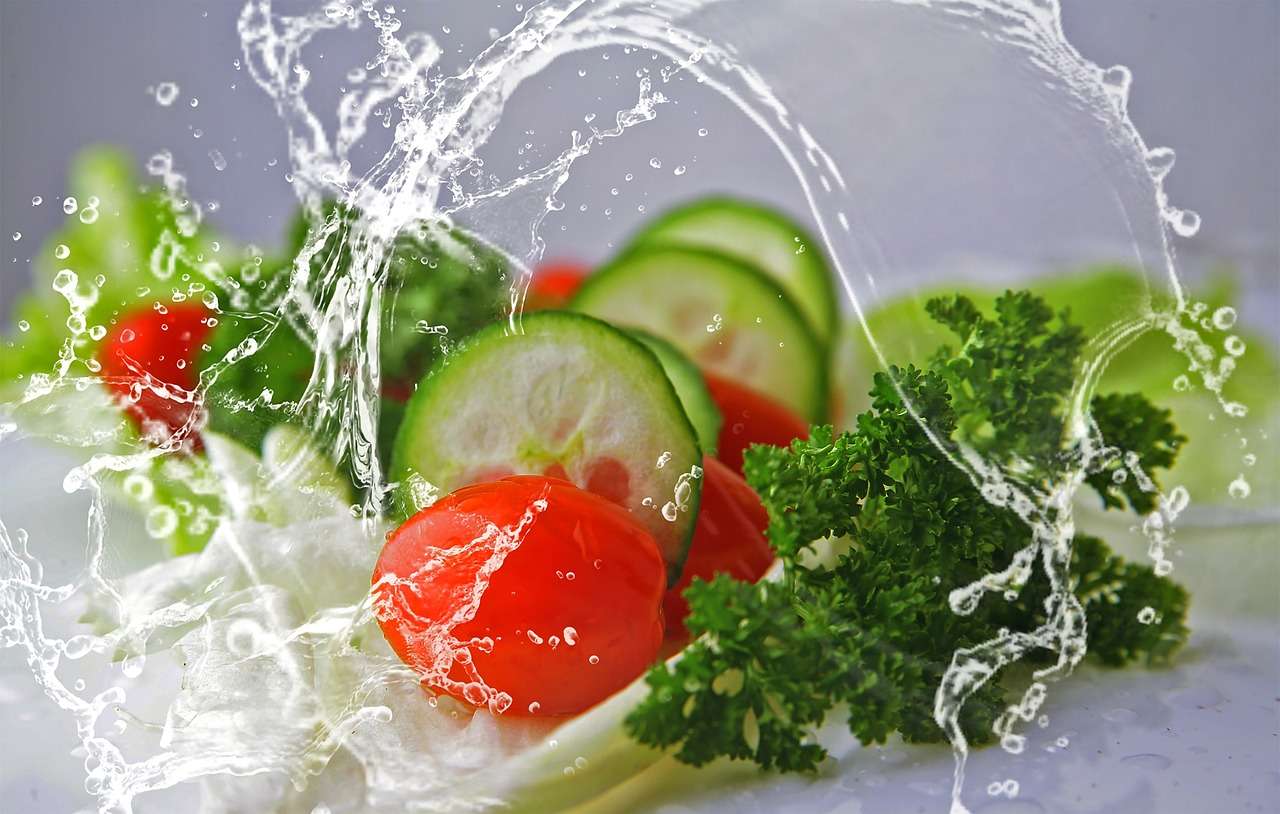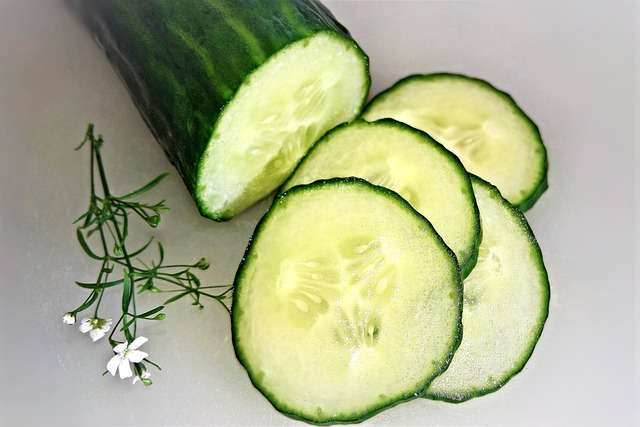Introduction:
The gourd family known as Cucurbitaceae includes the commonly farmed and consumed vegetable known as cucumber. With their refreshing flavor and crisp texture, cucumbers have distinguished themselves as one of the most consumed vegetables worldwide.

Typically, cucumbers are grown for their fleshy, elongated, cylindrical shape. Depending on the variety, nutrition facts of cucumbers can have a range of sizes, colors, and textures.
They are widely used as an ingredient in a wide range of foods and drinks because of their mild and refreshing flavor.
Nutrition Facts of Cucumber:
The macronutrients and micronutrients in cucumbers, including their calories and serving size, carbohydrate, fiber, and sugar content, as well as the vitamins and minerals they contain, are as follows:
Calories and Serving Size
Because the nutrition facts of cucumbers have a very low calorie count, they are a perfect option for persons trying to control their calorie consumption. The average serving size of sliced cucumbers is one cup or 104 grams, and just 16 calories are included.
This implies that you can eat a filling meal without significantly increasing your calorie intake.
Carbohydrates
Although the majority of the carbohydrates in cucumbers are in the form of complex carbohydrates, this is excellent news. Sliced cucumbers typically provide 4 grams of carbs per cup, on average.

Dietary fiber
This is important for digestive health and aids in promoting sensations of fullness, is present in cucumbers in good amounts. You can acquire roughly 1 gram of dietary fiber in a cup of food.
Sugar Content
Cucumber has an extremely low sugar content. Since they normally have less than 2 grams of sugar per cup, they are a great option for people who need to limit their sugar intake.
Vitamin K
Vitamin K, which is found in cucumbers, is crucial for blood clotting and bone health. It’s critical to consume enough vitamin K to preserve healthy bones and avoid excessive bleeding.
Vitamin C
Another antioxidant found in cucumbers, vitamin C strengthens the immune system, encourages good skin, and aids in the absorption of iron from plant-based diets.
Potassium
Cucumbers are a good source of this element, which is essential for maintaining healthy nerve and muscle function as well as blood pressure regulation.
Consuming foods high in potassium, such as cucumbers, can benefit heart health.

Magnesium
Cucumbers also contain this important element. It is involved in hundreds of biochemical processes in the body, including energy production, bone health, muscle and neuron function, and many others.
Health Benefits of Cucumber:
Let’s look more closely at the health advantages brought on by cucumber consumption:
1. The value of hydration
• Hydration: Cucumbers are largely composed of water, having a water content of about 95%. Cucumbers are a fantastic option for staying hydrated because of their high water content, especially in hot weather or after exercise.
• Importance: Drinking enough water is important for good health in general. Water is crucial for maintaining body temperature, transferring nutrients, eliminating waste, and lubricating joints.
In addition to supporting healthy skin, adequate hydration can help avoid dehydration-related issues like weariness and heat stroke.
2. Weight management
• Low in calories: A cup of sliced cucumbers contains only 16 calories, making cucumbers one of the lowest-calorie fruits and vegetables. They are a great option for people who want to control their weight because of their low-calorie content.
• High water content: Cucumbers’ high water content helps to give them their bulk and satiety, which makes you feel fuller without consuming a lot of extra calories.
By encouraging feelings of fullness and lowering overall calorie consumption, it might help with weight management.
3. The role of antioxidants in decreasing inflammation
• Antioxidant qualities: Cucumbers have anti-oxidants including flavonoids and tannins that aid in preventing oxidative stress on the body. When there is an imbalance between the body’s capacity to eliminate dangerous free radicals and their production, oxidative stress results.
• Reducing inflammation: The antioxidants in cucumbers can help reduce inflammation by lowering oxidative stress.
Different health problems, such as autoimmune disorders, cancer, and heart disease, are linked with chronic inflammation.
Antioxidant-rich foods, including cucumbers, can help reduce inflammation and lower the chance of developing associated disorders.
4. Support for regularity and digestive health thanks to their fiber content
• Dietary fiber content: Despite having nutrition facts about cucumbers and few calories overall, cucumbers are a good source of dietary fiber. Typically, 1 gram of dietary fiber may be found in 1 cup of sliced cucumber.
• Digestive health: Dietary fiber is crucial for maintaining good gut health. It makes the stool more substantial, which can aid in preventing constipation and encouraging regular bowel motions.

Additionally, fiber encourages the development of good bacteria in the gut, which is important for maintaining gut health.
How to incorporate cucumber into your diet:
Cucumber is a delicious, simple, and nutritious way to add variety and nutrients to your diet. Here are a few methods to include cucumber in your diet on a regular basis:
Fresh Cucumber Slices: Slicing cucumbers and eating them as a snack is the simplest way to enjoy them. For added flavor, you can sprinkle them with a little salt or with your favorite spices.
Cucumber Salad: Combine sliced cucumbers with tomatoes, red onions, bell peppers, and fresh herbs like parsley or dill to make a refreshing salad. For a simple and energizing side dish, combine it with olive oil, vinegar, lemon juice, and any herbs of your choosing.

Cucumber Sandwich: To add crunch and moisture to your sandwiches or wraps, add slices of cucumber. They go great with a wide range of fillings, including hummus, chicken, and turkey.
Cucumber Wraps: For a low-carb, nutrient-dense dinner, add cucumber to a lettuce or collard green wrap along with toppings like avocado, grilled chicken, and a drizzle of your preferred sauce.
Cucumber and Yogurt Dip (Tzatziki): Combine cucumber, Greek yogurt, garlic, lemon juice, and fresh herbs like dill and mint to make tzatziki sauce. It makes a great condiment for grilled meats, vegetables, and pita bread.
FAQs:
1. Do cucumbers contain any vitamins?
Cucumbers do include vitamins including vitamin K and vitamin C, which are necessary for a number of bodily processes.
2. Can cucumbers help you lose weight?
Yes, cucumbers can aid in weight management by encouraging feelings of fullness because they are low in calories and high in water.
3. Can you eat cucumber seeds?
Cucumber flesh and seeds are frequently consumed together, so the answer is yes.
4. Are there any adverse effects to eating cucumbers?
Due to their high fiber content, cucumbers might contribute to digestive issues like bloating or gas.
5. Can cucumber be applied to the skin?
Due to their moisturizing qualities, cucumber slices and products containing cucumber are frequently used in skin care regimens to relieve inflammation and soothe the skin.
Conclusion:
Last but not least, cucumbers are a well-liked and adaptable vegetable with a mild, reviving flavor and a host of health advantages and nutrition facts of cucumbers .
They provide hydration, assistance with weight control, anti-inflammatory antioxidants, and dietary fiber for digestive health, making them a vital supplement to a balanced diet.
Cucumbers are a hydrating and nutrient-rich food that can improve general health and cooking delight, whether they are eaten raw in a salad, as a crisp snack, or incorporated into a number of dishes.

1 thought on “Nutrition Facts of Cucumber: A Guide to Health Benefits”